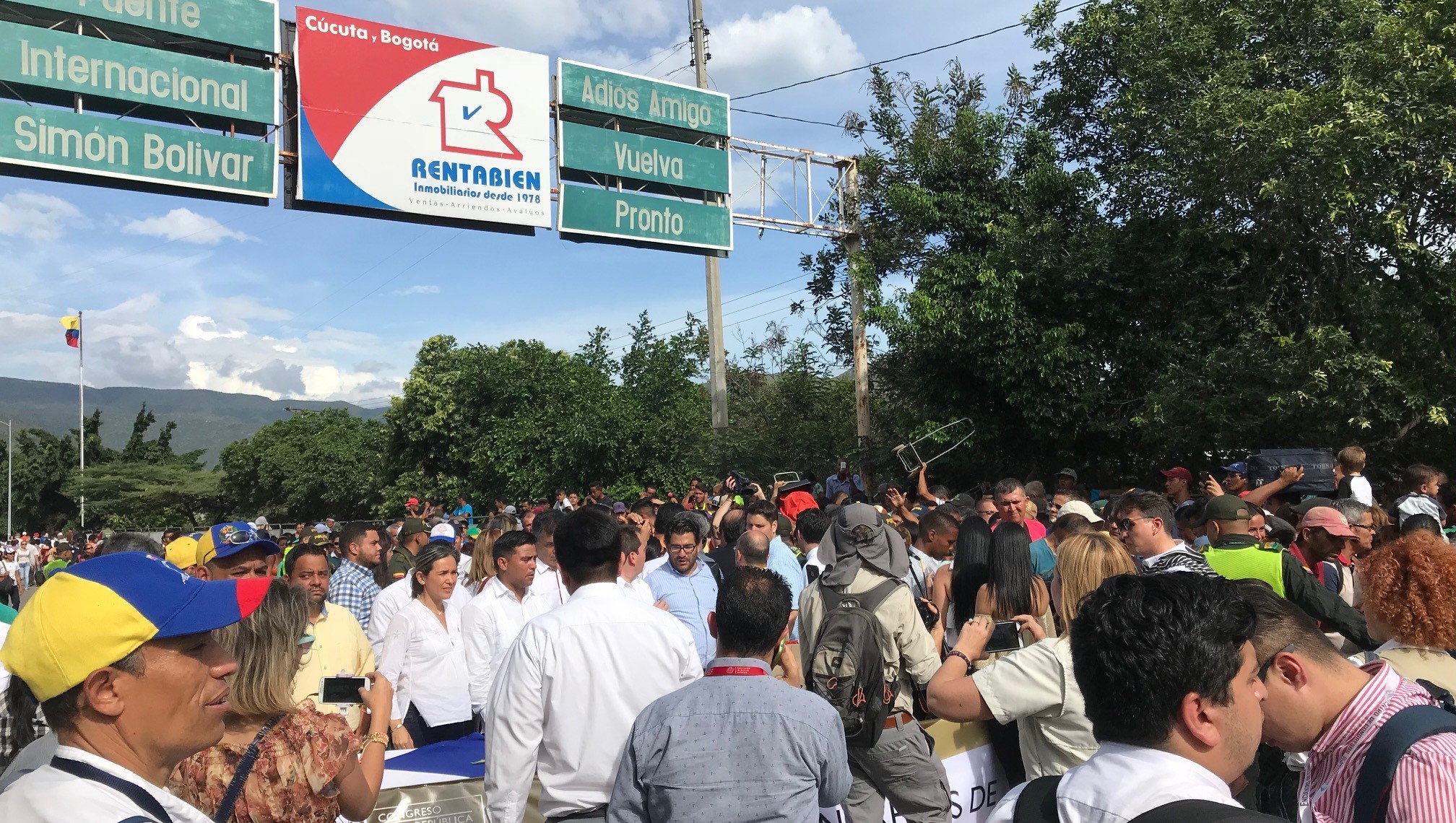
People have been migrating forever—to pursue fresh opportunities, or, more often, to escape a bad situation in order to survive. Sadly, the latter is responsible for most mass movements today.
Instability, violence, poor economic prospects and corruption commonly underly mass migration, or so experts tell us. But such conditions don’t just happen by chance. In the Americas, they usually result from poor governance, either too little of it or too much. So, if we want to do something about the conditions that force people to abandon their countries in our hemisphere, we need to go after the root cause.
Take weak governance. For 50 years, Colombia’s vast rural territories lacked development and state presence, allowing armed insurgencies and drug trafficking to flourish. Over time, the conflict killed thousands and displaced some 7 million internally while another 5 million fled to neighboring Venezuela. It wasn’t until about 70 percent of the country’s national territory was overrun by marauding bandits that national leaders developed the political will to do something about it. With help from allies like the United States, Colombians brought the situation under control, and their country is in a much better place today.
The Northern Triangle countries of El Salvador, Guatemala and Honduras are still a work in progress, however. Their populations rose up against military dictators in the 1980s. With encouragement from the United States, civilian elected governments replaced them. But as these fledgling democracies were learning how to self-govern, South American drug traffickers moved in to establish routes to U.S. markets. Ever since, these countries have been playing catch-up to crime waves unleashed by cartels. Murder rates in El Salvador, Guatemala and Honduras were 82, 27 and 56 per 100,000 people in 2016—much higher than the 6 per 100,000 global average calculated by the United Nations Office on Drugs and Crime.
Traffickers and associated gangs have not only run rough-shod over rural populations, but they have attempted to corrupt government at every level, depressing legitimate investment, increasing the cost of doing business and impeding social progress. Poverty is estimated at 35 percent in El Salvador, 60 percent in Guatemala and 66 percent in Honduras. Although each of the three countries are steadily gaining capacity to combat criminality and support a decent quality of life for more citizens, progress can’t come fast enough. In recent years, more than 100,000 migrants from these countries have reached U.S. borders annually according by most accounts.
Mexico offers a lesson in government response to economics and demography. A currency crisis, high unemployment and a large cohort of youth entering the labor market in the 1990s contributed to a surge that peaked at about 600,000 migrants reaching the United States in 2000. Thereafter, the positive effects of a trade deal (NAFTA) plus new labor and competition reforms helped reverse the trend. Since 2010, as many or more Mexican migrants have typically left the United States than have entered. Andrés Manuel López Obrador, who won Mexico’s presidency this July 1, said he would cast a critical eye on those reforms and tackle rising crime and corruption problems without specifying how. The direction he goes could determine whether Mexico returns as source of migrants.
On the malign end of the scale, thousands of Venezuelans are now crossing into Colombia every day, fleeing governance in its worst form. Government by the people came under threat by an elected populist, then devolved into a tyrannical dictatorship whose iron grip has imprisoned political opponents, brought famine, economic collapse and spiking violence upon a once prosperous population. The number of Venezuelan migrants/refugees in Colombia now number more than 1 million according to recent estimates, many of them fanning out to other Latin American countries, the United States and Europe to find work and safety.
In Nicaragua, Daniel Ortega, a former dictator who won a free election in 2006, twisted laws and institutions to stamp out opposition, remove term limits and increase his family’s wealth at the expense of the people. Despite 40 percent poverty, citizens seemed satisfied with social programs financed by Venezuelan oil money. But after Venezuela’s economy collapsed, Ortega asked for cuts in social security and workers to pay more taxes. When hundreds of thousands began protesting in Managua’s streets on April 18, Ortega sent police and partisan militias to attack them, killing more than 300. So far, Nicaragua’s youth, farmworkers, small business owners and pensioners have stood their ground. Yet if assaults get much worse, Nicaragua’s abundance of bad government could spur another migration nightmare in the hemisphere.
Instability, violence, poverty and corruption all qualify as “push” factors. Obviously, “pull” factors include better conditions somewhere else. Since no one in their right mind would want to reduce the “pull” factors where they live, it makes sense to adopt a comprehensive approach that includes helping neighbors address governance issues that contribute to “push.”
That’s what IRI does—sometimes working at the national level, but more often at the grassroots community level. In neighboring democracies, we help friendly governments improve accountability, open policy-making to citizen participation, and incorporate security best practices that make communities safer and more secure. We also support civil society organizations and watchdog groups to reduce space for corruption and criminal networks to operate. Finally, IRI helps committed democrats living in authoritarian regimes preserve space for people to exercise their rights and try to make their societies better.
In 2016, the United Nations calculated that about 65 million were compelled to leave their home globally—mostly in the Middle East and Africa. As we have seen, the Americas has its share of mass migration issues. Reducing push factors means introducing best practices to mayors and town councils, working with national legislatures and government ministries. And, it means supporting the growth and effectiveness of civil society organizations that articulate citizens’ interests. All this takes time. Yet, improving governance—getting to the root of the problem, is what will help bring peace and prosperity and relieve mass migration incentives in the Americas.
Top